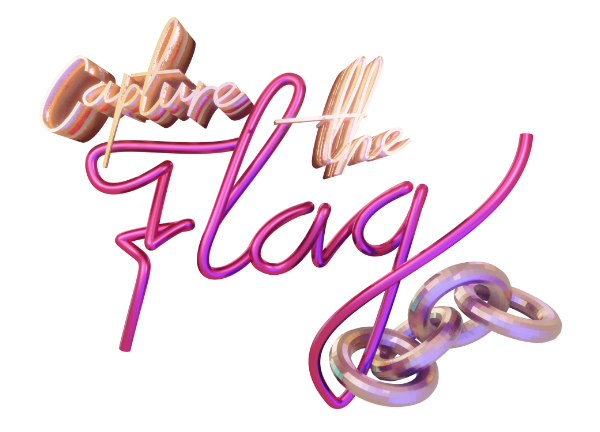It is a common misconception to associate blockchain technology exclusively with cryptocurrencies like Bitcoin. The technology itself already provides a wide range of services such as decentralized messaging services, marketplaces, and most importantly, decentralized domain names that cannot be censored or completely shut down. Imagine if payments could be shared universally and owners had full control over their domain assets.
You may ask, "What's so special about that?" A simple answer is: Today's Internet is broken We can use the Internet, but we don't own anything we do. Here are a few reasons why:
- Registrars are mandatory administrators of centralized domains such as .com or .net.
- Registries can revoke or decommission domains.
- Hosting services can take content completely off the web, not just off their service platform.
For the first time in history, with the creation of blockchain networks such as Ethereum, Filecoin and others, there are new possibilities in terms of ownership and control. On the contrary, blockchain domains are not only decentralized but also secured by cryptographic encryption. They represent a new class of assets that truly belong to the owner rather than a third party or a central authority.
This has several benefits for both asset owners and their users, including:
- (True) ownership: The owner has a private key to his domain, so that the domain is completely under his control. Current solutions are not regulated by, for example, ICANN and do not require approval from it.
- Censorship Resistant: A blockchain domain also makes a website censorship resistant for the owner, as the private keys should be stored in a (ideally non-censorship) wallet to which only the owner has the keys. Without the private keys, no third party can interfere with or disable the website.
- Replacing cryptocurrency addresses with human-readable names: A blockchain domain replaces the need to copy and paste fairly cryptic wallet addresses while greatly simplifying the process of sending and receiving payments. Domains become payment gateways by appending a cryptocurrency wallet address to a domain name; giving users the ability to send or pay money.
- Transfer speed: Blockchain domains do not require an escrow to securely exchange the domain or money. This transfer can be done in less than 1 minute, from or to anywhere in the world.
Ethereum Name Services
Nick Johnson and Alex Van de Sande of the Ethereum Foundation originally conceived the ENS (Ethereum Name Service).
It provides a naming system on the blockchain that integrates with traditional DNS. Unlike some of its competitors, ENS does not seek to replace DNS. Additionally, the system provides a secure and decentralized way to address different resources with human-readable names. Instead of sending someone ETH to 0xa4edd4f3b6a3f15ecce4b73fd9a196cffc7d28ad, a user can simply send to axelquack.eth.
Another excellent feature of ENS is its interoperability with the rest of the Ethereum ecosystem. ENS can interact with all Ethereum-based smart contracts. A contract records all domains and subdomains, as well as ownership details and the link to the resolver, another smart contract that performs translations from names to addresses or other types of resources and vice versa.
It should be noted that ENS charges an annual fee for a .eth domain. This fee is about 5 EUR/year for available "normal length" domains, payable in corresponding ETH value. Although this does not sound expensive, it should be remembered that the provider can change the fee at any time. Since the user cannot easily move the domain to another provider, this is already a point that can be a disadvantage.
If you use a browser like Brave or even Chrome, the browser extension MetaMask will provide you with support. For example, if you are using Chrome with MetaMask, type "http://almonit.eth" in the URL bar and a website search engine will load.
Unstoppable Domains (.crypto/.zil)
Unstoppable Domains was born in 2018 out of Brad Kam's desire to "build something at the intersection of technology and politics." Kam studied politics before meeting co-founder Matthew Gould while working on his first startup, Talkable, a SaaS marketing platform. The startup is backed by Draper Associates & Boost VC and has also received grants from the Ethereum Foundation and Zilliqa Foundation.
Users can connect to crypto domains like .zil (live on the Zilliqa blockchain) or .crypto (live on Ethereum) to get paid, for example. All someone needs to know is their blockchain domain.
The difference is that .zil domains are stored on the Zilliqa blockchain and transactions are processed through it, which comes with low fees. In contrast, .crypto domains are stored on and transact through the Ethereum blockchain. Both are capable of pointing to multiple cryptocurrency wallet addresses (for payments) and censorship-resistant website content.
The exciting thing about Unstoppable Domains is that a user actually buys the domain. Once the domain is paid for and ends up in a wallet (for example, there is an easy way to store domains in Coinbase Wallet, Atomic Wallet and so on - but also the possibility to store in hardware wallets), no one can take it away from the owner. In addition, there are no other costs. This quickly puts the somewhat higher initial costs into perspective. For a .crypto domain 40 USD are due, for .zil domains it is 20 USD. Another possibility is the payment via PayPal or credit card.
There are several ways to access .crypto domains. Browsers with native support for decentralized websites include Brave (desktop version), Opera (mobile), Status (mobile), MetaMask Mobile (mobile) and Unstoppable Browser (desktop). In addition, it is always possible to install an official Chrome or Mozilla extension to access websites based on P2P networks such as IPFS. The company itself offers a template marketplace and upload capabilities associated with Pinata.
As of May 2020, Unstoppable Domains stated that 200K+ domains have been registered, 4K+ IPFS websites have been launched, and 12K+ unique Ethereum addresses have domains, to name a few of the key facts. Support for decentralized databases such as OrbitDB or GUN and paid hosting were mentioned as possible future functionalities.
Final Thoughts
Decentralized systems that do not need a central intermediary to function already existed when the Web was invented. The Internet in particular gained increasing traction as a large-scale decentralized network. The emergence of blockchain domains not only enables protection from censorship or a shift toward self-ownership, but also facilitates payments with cryptocurrencies, which could further drive adoption of digital assets.
The website and the information contained therein are not intended to be a source of advice or credit analysis with respect to the material presented, and the information and/or documents contained on this website do not constitute investment advice.

